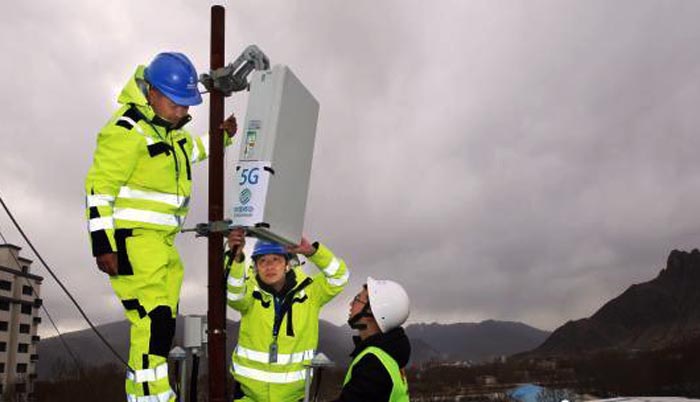
(TibetanReview.net, Mar03’19) – China said Mar 1 that it had opened its first 5G internet base station in Tibet, located in capital Lhasa, with plans to launch tests to enable the facility to reach people living in the region’s remote farming areas as the next step. China Mobile’s Tibet branch announced on Mar 1 that one of the 5G base stations, with a peak download speed of 530 megabytes per second (MBPS), became operational in Lhasa on Feb 27, reported China’s official globaltimes.cn Mar 1, citing news site chinanews.com. The latest internet technology is known be most efficient for surveillance and spying operations, especially in the application of application of facial recognition technology.
Indeed, the timesofindia.com Mar 3 cited experts as being of belief that 5G, which can support Internet of Things more effectively, can serve a wide range of military purposes, including monitoring the mountainous border and deployment of weapons.
The globaltimes.cn report said that with equipment provided by Chinese technology giant Huawei, China Mobile installed the 5G base stations at the company’s building, the Lhasa posts and telecommunications school, and at the office of the Tibet Post Group in Lhasa. The report added that the base station at the Lhasa posts and telecommunications school had already become operational.
The report said the next step for China Mobile’s Tibet office will be to accelerate the testing of the 5G application and promote the development of the big data industry and innovation of the Internet of Things based on 5G technology in Tibet, which will enable residents living in farming areas in Tibet to enjoy advanced modern communication services.
However this is not without problems. The report cited Xiang Ligang, chief executive of telecom industry news site cctime.com, as saying that construction of the 5G network in the remote areas of the Tibetan Plateau faced challenges from cold weather and high altitude.
“Electricity supply alone is a complex process,” Xiang has noted, adding that optical fiber tends to lack stability in cold weather. However, he has said the obstacles will be overcome. “It is important to realize synchronous development of 5G service between Tibet and other regions in China, which is a move we’ve been talking about since 4G kicked in,” he was quoted as saying.
Right now the staff are busy conducting 5G application tests and will later apply the 5G technology to smart city construction and digital life, China’s official Xinhua news agency Mar 1 cited Nyima Dondrup, manager of the network department of China Mobile’s branch in Lhasa, as saying.
The report said outdoor terminal tests showed the base station could offer an average Internet speed of some 500 MBPS and that a 1GB file could be downloaded in only two seconds.
The report cited Nyima Dondrup as saying the company will accelerate network construction in Tibet, allowing people in remote areas to enjoy the same modern information and communication services as those in the developed regions.
The report said that in 2018, mobile broadband (including 3G and 4G) users in Tibet amounted to 2.76 million households, with the local mobile broadband penetration rate of 83.35 percent.





